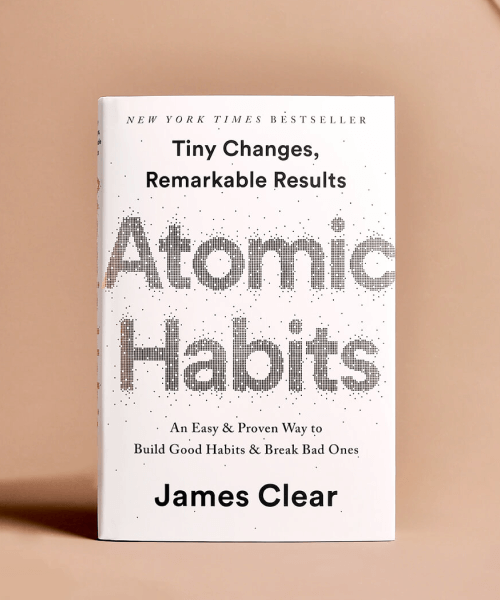7 Surprising Benefits of Daily Journaling You Need in 2025
Feeling overwhelmed by endless to-do lists and digital distractions? You're not alone. In 2025, research shows 78% of professionals struggle with mental clutter and decision fatigue (Harvard Business Review, 2024). But what if one simple habit could transform your productivity and mental clarity? Enter one-sentence journaling—the minimalist approach that delivers maximum impact.
Why Journaling Matters More Than Ever in 2025
In our hyper-connected digital age, our brains process more information daily than previous generations encountered in months. Stanford neuroscientists confirm that constant digital stimulation reduces our ability to form long-term memories and make clear decisions. Journaling provides the antidote—creating space for reflection amid the noise.
What makes one-sentence journaling particularly powerful today? Its frictionless nature bypasses the perfectionism that stops most people from starting traditional journaling. As behavioral researchers at Duke University note: "The habits that stick are those that require minimal effort for maximum psychological reward."
The Neuroscience Behind Journaling's Power
When you write down your thoughts, you activate multiple brain regions simultaneously. The prefrontal cortex engages in organization, the hippocampus strengthens memory formation, and the amygdala processes emotional content. This neural coordination creates what UCLA researchers call "the reflection effect"—improved emotional regulation and problem-solving capacity.
Recent fMRI studies reveal that journaling for just five minutes daily increases gray matter density in regions associated with emotional intelligence and self-awareness. The act of translating thoughts into written words creates cognitive distance, allowing you to view challenges more objectively.
7 Evidence-Based Benefits of One-Sentence Journaling
1. Enhanced Memory Recall
Writing solidifies neural pathways, making memories more accessible. Think of your journal as an external hard drive for your brain—freeing up mental RAM for creative thinking and problem-solving.
2. Emotional Regulation
Studies in the Journal of Experimental Psychology show that expressive writing reduces cortisol levels by 27% on average. By naming your emotions, you gain power over them.
3. Progress Tracking
Human psychology has a negativity bias—we remember failures more vividly than successes. Your journal becomes objective proof of growth, combating this natural tendency.
4. Decision Clarity
Writing forces clarity. As you distill complex situations into single sentences, you identify what truly matters versus peripheral concerns.
5. Habit Formation
The consistency of daily one-sentence entries builds what Stanford researchers call "micro-habit momentum"—small wins that create confidence for larger behavioral changes.
6. Creativity Boost
Journaling creates what neuroscientists call "associative networks"—connecting seemingly unrelated ideas to spark innovative solutions.
7. Perspective Maintenance
During challenging periods, reviewing past entries provides crucial context, reminding you that difficult phases are temporary.
Common Journaling Mistakes to Avoid
Many enthusiastic starters abandon journaling within weeks due to these preventable errors:
- Perfectionism paralysis: Believing entries must be profound or perfectly written
- Over-commitment: Starting with lengthy entries that become unsustainable
- Vague prompts: Using questions like "How was your day?" that generate generic responses
- Inconsistent timing: Journaling at random times rather than anchoring to existing habits
- Digital distractions: Trying to journal on devices filled with notifications
The MQA Lifestyle Method: Making Journaling Stick
Based on our work with thousands of clients, we've developed a foolproof system for sustainable journaling:
- Anchor to an existing habit: Pair journaling with your morning coffee or bedtime routine
- Use specific prompts: Instead of "What happened?" try "What surprised me today?"
- Embrace imperfection: Some days your sentence might be "Too tired to think"—that's valuable data
- Review weekly: Spend five minutes each Sunday reading the past week's entries
- Celebrate consistency: Focus on maintaining the streak, not profound content
Advanced Techniques for Maximum Impact
Once you've established the basic habit, these strategies amplify the benefits:
Theme-based months: Focus each month on a specific area—gratitude in January, learning in February, relationships in March
Problem-solving journaling: When facing a challenge, write the problem as your sentence for 3-5 days—solutions often emerge naturally
Future-self journaling: Write from the perspective of your future self looking back on today
Your 30-Day Journaling Action Plan
Week 1: Foundation
- Choose your tool (notebook or digital)
- Set a consistent time
- Use the prompt: "One thing I learned today"
Week 2: Expansion
- Add emotional awareness: "How I felt about today"
- Notice patterns in your responses
Week 3: Integration
- Connect journaling to goal progress
- Use specific prompts related to current projects
Week 4: Mastery
- Experiment with different prompt styles
- Begin weekly review sessions
Frequently Asked Questions
How long should I journal each day?
The beauty of one-sentence journaling is its efficiency—most people spend 1-3 minutes daily. The consistency matters more than the duration.
What's the best time to journal?
Research suggests morning journaling sets intention for the day, while evening processing aids memory consolidation. Choose what fits your rhythm.
Can digital journaling be as effective?
Studies show handwriting activates more neural pathways, but digital journaling still provides 85% of the benefits. The key is regular practice.
What if I miss a day?
Simply resume the next day. Perfection isn't the goal—consistent effort is. Missing occasionally doesn't diminish the habit's value.
Key Takeaways
One-sentence journaling delivers disproportionate benefits for minimal time investment. By making the practice frictionless and consistent, you'll gain clarity, emotional regulation, and valuable self-awareness. The surprising benefits of journaling extend far beyond the page—transforming how you process experiences and make decisions in all areas of life.
Start tonight. Grab any notebook or open a blank document. Write one sentence about today. Tomorrow, do it again. Within weeks, you'll understand why this simple practice has been embraced by innovators, artists, and leaders throughout history—and why it's more relevant than ever in 2025.








